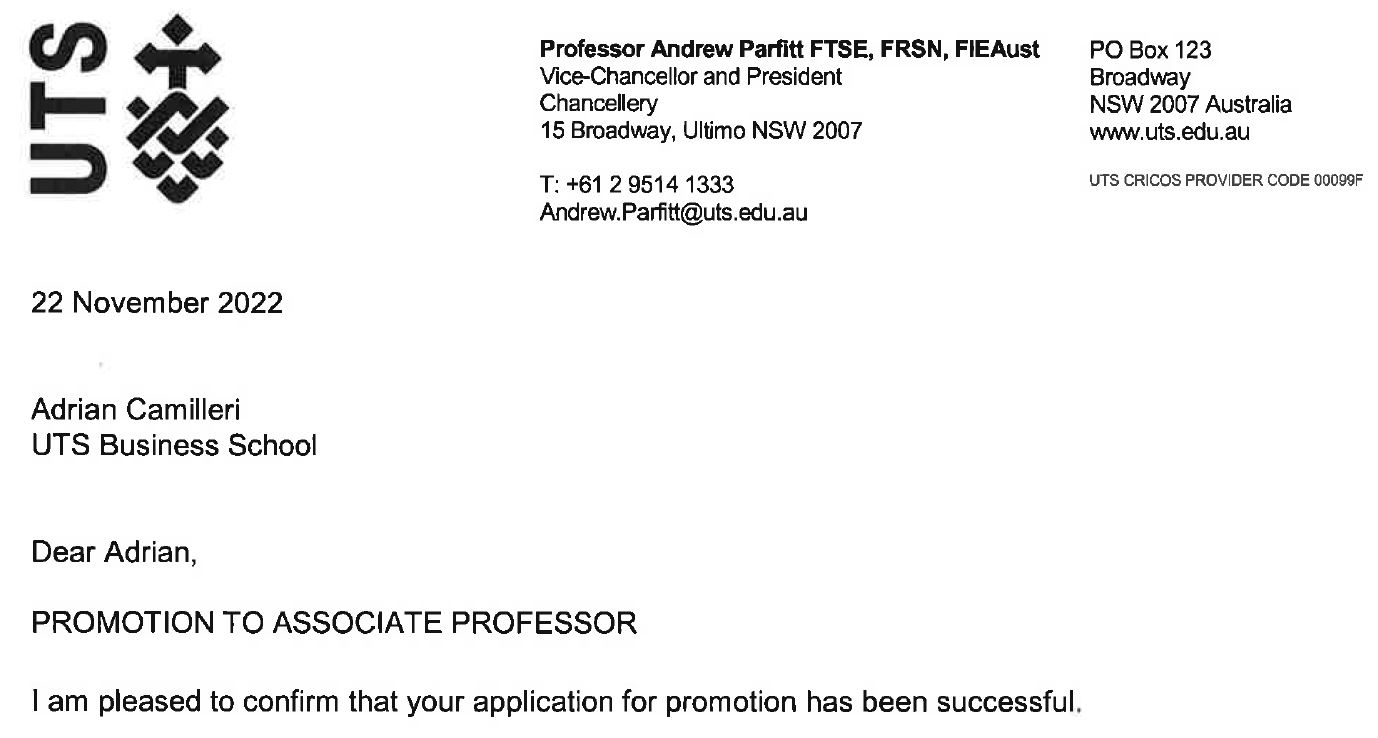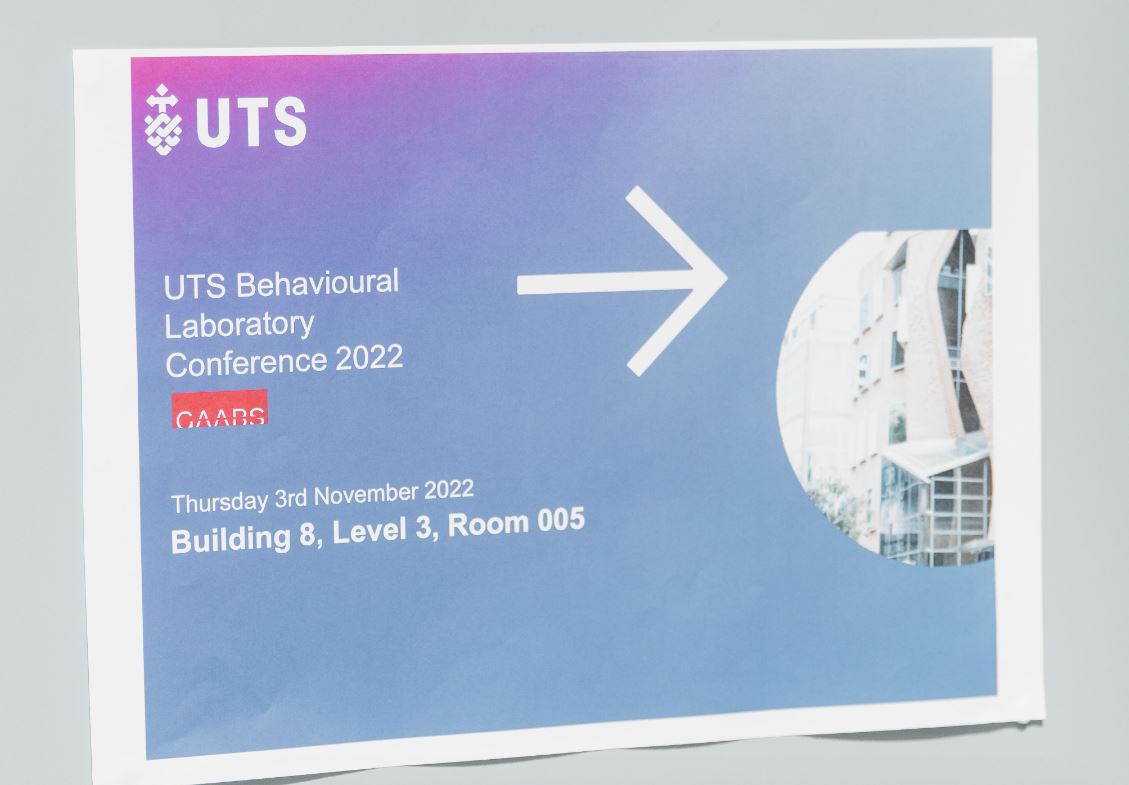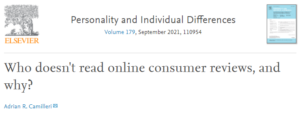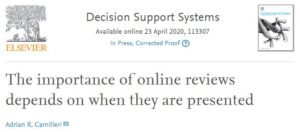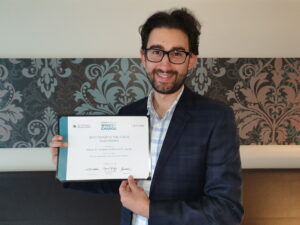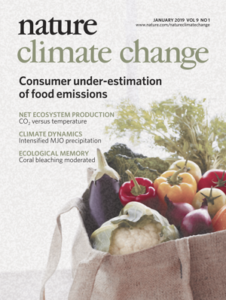Author's posts
Dec 09 2022
Presented at ANZMAC in Perth
My first visit to Australia’s west-most state took me to Perth to attend the 2022 Australia New Zealand Marketing Academy Conference. The conference theme was “Reconnect & reimagine” as the world started to move on from COVID, which allowed us to see old friends face-to-face for the first time in years. On the afternoon prior …
Nov 22 2022
Promotion to Associate Professor!
Today, I was so very pleased to learn the outcome of my promotion application: I have been promoted to Associate Professor! Gosh, what a relief! Putting together a promotion application is a lot of effort. I had a full draft 6 months before the due date and revised and revised and revised after gathering feedback …
Nov 07 2022
Hosted the 2022 UTS Behavioural Lab Conference
Last week the UTS Business School, in partnership with the Global Association of Applied Behavioural Scientists (GAABS), hosted the 2022 UTS Behavioural Lab Conference. What brought together the ~75 people in the room was a shared interest and expertise in behavioural science and the belief that the people in the room – from academia, industry, …
Apr 28 2021
New article out on who doesn’t read online reviews, and why
I am very pleased to announce the publication of my new paper, “Who doesn’t read online consumer reviews, and why?” in the journal, Personality and Individual Differences. A few years ago, I worked with the Consumer Policy Research Centre to better understand Australian’s attitudes towards and usage of online consumer reviews (OCRs). There were a …
Jan 04 2021
My first sabbatical begins
A sabbatical is a time for academics to engage in scholarly research away from their home institution (while still getting paid). The idea, I think, is to encourage faculty members to expand their network, learn new skills, and begin large projects that might not otherwise get off the ground amidst the burden of teaching and …
Apr 28 2020
New article out on when to present online reviews
After several years of ups and downs, I am very pleased to announce the publication of my new paper, “The importance of online reviews depends on when they are presented” in the journal, Decision Support Systems. The paper brings to bear a classic focus of cognitive psychology – information order effects – in a much …
Dec 06 2019
Presented at ANZMAC in Wellington
My first visit to New Zealand took me to Wellington to attend the 2019 Australia New Zealand Marketing Academy Conference. The conference theme was “Winds of Change” and I very quickly realised that the title was also a clue to the fact that Wellington is, arguably, the windiest city in the world. For most of …
Jul 23 2019
New article out on the collective aggregation effect (+ a podcast)
Several years ago, Rick Larrick and I wondered about an important problem: How do you motivate people to make a contribution when that contribution would represent just a small drop in a bucket, nay, an Olympic-sized pool. Building from our previous work regarding the benefits of increasing the scale upon which fuel consumption is expressed, …
Dec 18 2018
New article out on why overconfidence is influenced by how relevant information is learned
There has been a lot of previous research on how risky choices differ depending on whether information (e.g., the performance of a worker) is learned about by “experience” (e.g., a front-line manager observing daily performance) or learned about from “description (e.g., a top-level manager reading a summary of performance over a long period of time). …
Dec 18 2018
New article out on how people underestimate the carbon footprint of foods
After ~5 years of effort, my collaborators (Richard Larrick, Shajuti Hossain, and Dalia Patino-Echeverri ) and I have published some really interesting research today in Nature Climate Change. The take away from this research is in the title: “Consumers underestimate the emissions associated with food but are aided by labels”. You can read the paper here …


